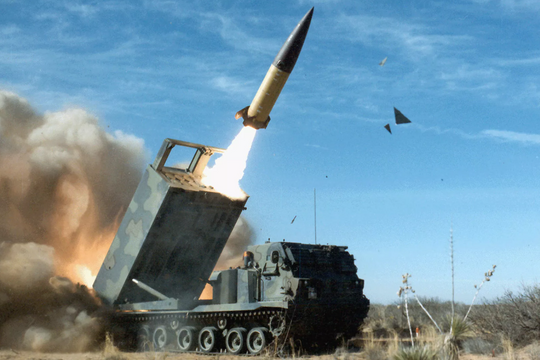Iran opens fire: The beginning or the end?
(Baonghean) - Just as Iran warned, after the burial of General Qasem Soleimani was completed, Iran immediately fired 12 missiles aimed directly at the two US military bases Ain Al-Asad and Erbil in Iraq.
Iran’s lightning strike has raised concerns about the possibility of a full-scale military confrontation between the US and Iran, pushing the Middle East into a “hot pot” that is said to be even hotter than the Iraq war. But for those who understand the regional geopolitical situation, there are still many forks in the road for the next developments after this attack: it could be the start of a new cycle of escalation, but it could also be the easing of the long-standing tension between the US and Iran.
Iran's move with hidden meanings
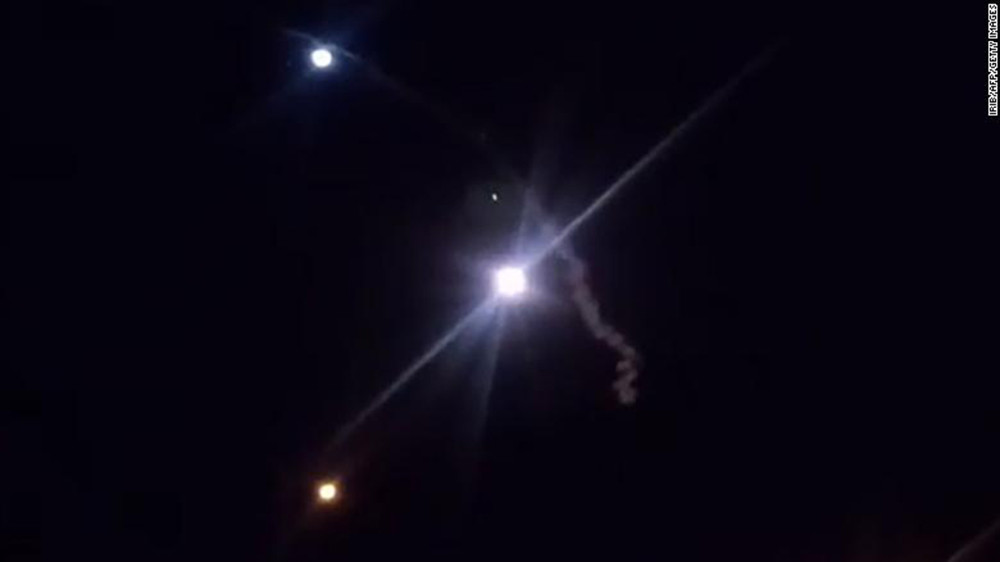 |
| Image of Iran launching missiles at US military bases in Iraq. Photo: CNN |
Surely the world was not surprised by Iran's missile attack on the US base in the early morning of January 8. It was an inevitable reaction from Iran after it announced that the US would pay the price and "prepare to suffer terrible consequences" for killing General Qasem Soleimani in an airstrike at Baghdad International Airport, Iraq. Not only did Iran save diplomatic face, its response also relieved the peak anger of the Iranian people, the anger of the crowd of millions attending General Soleimani's funeral and trampling on each other, killing 56 people.
Iran has chosen a more direct, decisive strike by attacking directly at US targets.
However, the world was quite surprised by Iran's choice of retaliation. While the world "held its breath and waited" during the time Iran "stood still" to hold the funeral for General Soleimani, there was a lot of speculation about Iran's options for action. Among them, many opinions agreed that Iran would use proxy forces to "strike" US interests in the region as usual. But Iran chose a more direct and decisive attack, for the first time directly using the army of the Iranian Revolutionary Guard to attack directly against US targets.
In addition, Iran also warned the US and its allies in the region to be extremely cautious before taking retaliatory steps. Accordingly, Iran announced that it would attack targets in Dubai, United Arab Emirates, and Haifa, Israel, and even attack the US territory directly if the US and its allies carried out retaliatory attacks on Iranian territory. In terms of form, this is worthy of the "terrible" retaliation as Iran warned, demonstrating its readiness to confront the US militarily.
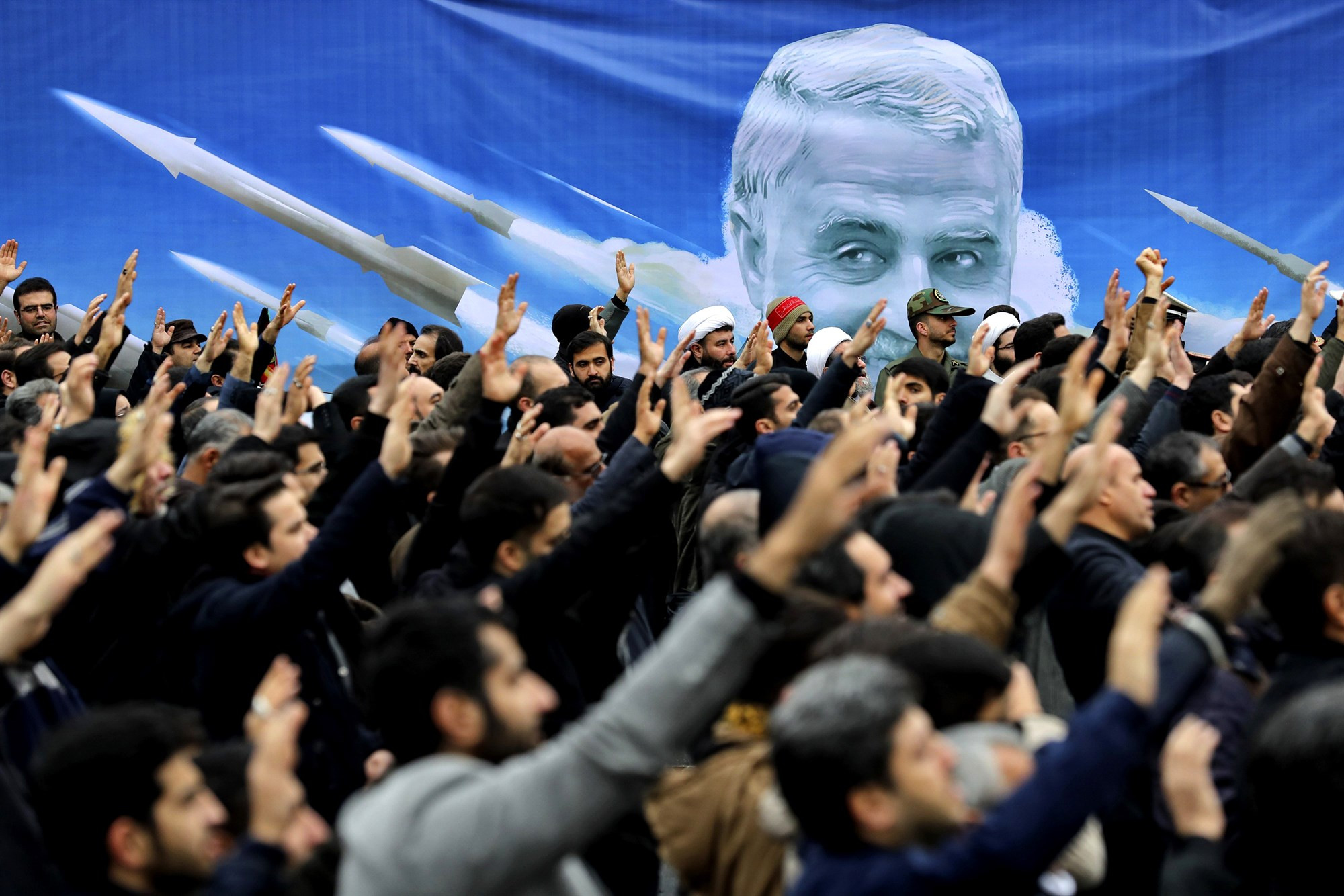 |
| Iran's attack is believed to be aimed at dispelling domestic anger after the death of General Soleimani. Photo: AP |
However, analysts have “read” the hidden messages that Iran wants to convey after the massive airstrikes on US military bases in Iraq, including the statement of Foreign Minister Javad Zarif that Iran will defend itself against any aggressive actions, but Iran does not seek to escalate tensions or war. And while the public is still anxiously waiting for official damage statistics from the US, many military experts have discovered that the two military bases that Iran targeted are located in quite isolated areas and have fewer US troops stationed than other bases since the US withdrew from Iraq.
In particular, the Ain Al-Asad airbase that Iran chose is considered more symbolic, because it was the only base that President Donald Trump visited during his sole trip to Iraq in December 2018.
Therefore, in terms of severity, Iran's missile attack on the US military base is considered not commensurate with the US's killing of Iran's second most powerful figure, General Soleimani. That is the basis for analysts to believe that, despite declaring readiness to respond to the possibility of war, Iran is actually still leaving the door open to temporarily close the period of peak tension between the US and Iran recently. That is partly shown when after the airstrikes on two US military bases in Iraq, Iran did not take any more dangerous steps.
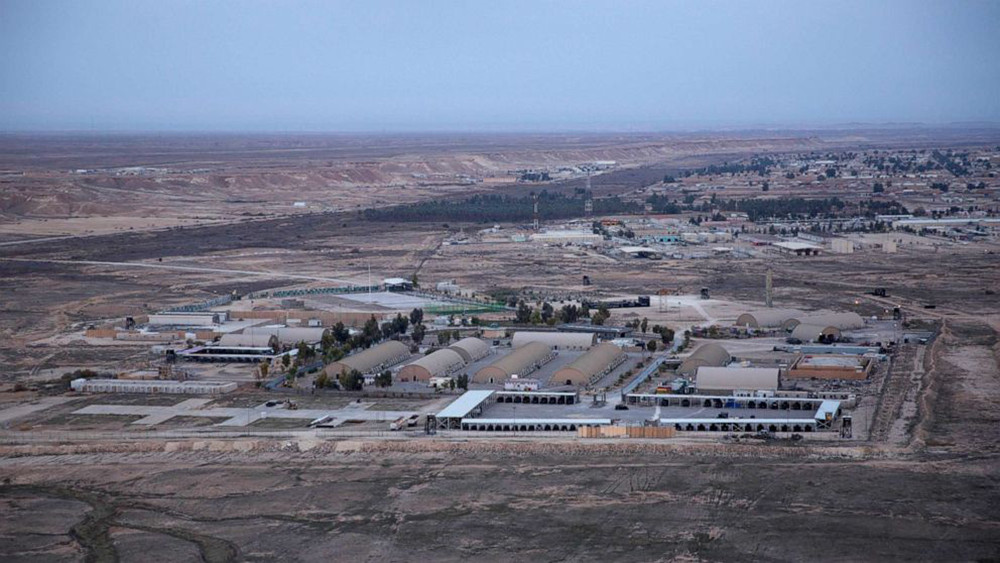 |
| Two US military bases in this country were attacked by Iranian missiles in the early morning of January 8. Photo: AP |
Trump considers advance and retreat
Iran may want to leave a way out of the recent tense situation with the US, but whether things will develop in that direction or not depends largely on President Donald Trump's reaction. By declaring that it does not want to escalate tensions, does not want to escalate war, Iran is also "betting" that Donald Trump himself does not want to get bogged down in an endless confrontation with Iran.
Iran’s direct attack surprised the world, and US President Donald Trump’s response was no less surprising. Instead of immediately giving a televised speech as is customary for US Presidents in times of foreign policy crisis, or at least posting the familiar Twitter status, Donald Trump simply announced “all is well” and everything “will wait until tomorrow”.
Senior government officials also left the White House that evening after consulting with the President without making any official comments. With this reaction, many people believe that Iran's attack may not have caused serious damage that would require the US to immediately respond. Because, no one doubts that all US forces have been put on combat readiness, ready to respond to any threat as previously stated by Defense Secretary Mark Esper.
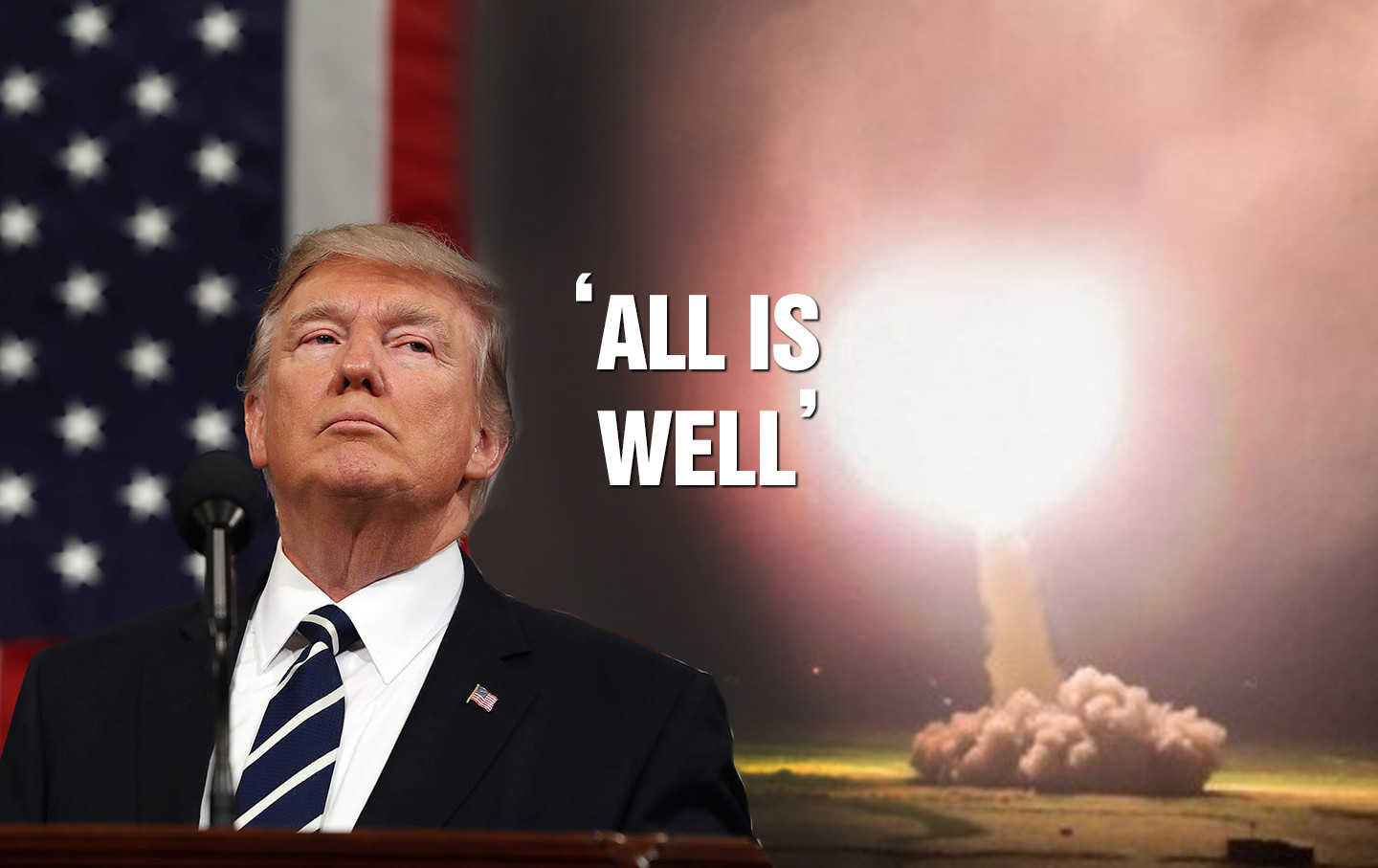 |
| Donald Trump's rare calm reaction after Iran's attack. Photo: The Nation |
When Iran attacked the US military base, world public opinion predicted that the incident would develop in two opposite directions: either triggering a full-scale US-Iran military confrontation, or temporarily defuse the current tense situation between the two sides. These two scenarios will depend on President Donald Trump's calculations: escalating tensions or taking a step back. Iran is said to be "playing a big gamble" by putting political pressure on Donald Trump.
With Donald Trump's announcement of reducing US involvement abroad, Iran believes that the US President does not want to go down in history as the person who initiated a large-scale war in the Middle East after withdrawing troops from Iraq, especially when the new presidential election is approaching very soon. This approach is also supported by many US congressmen who called on the administration to "end unnecessary provocations" in parallel with asking Iran to end violence.
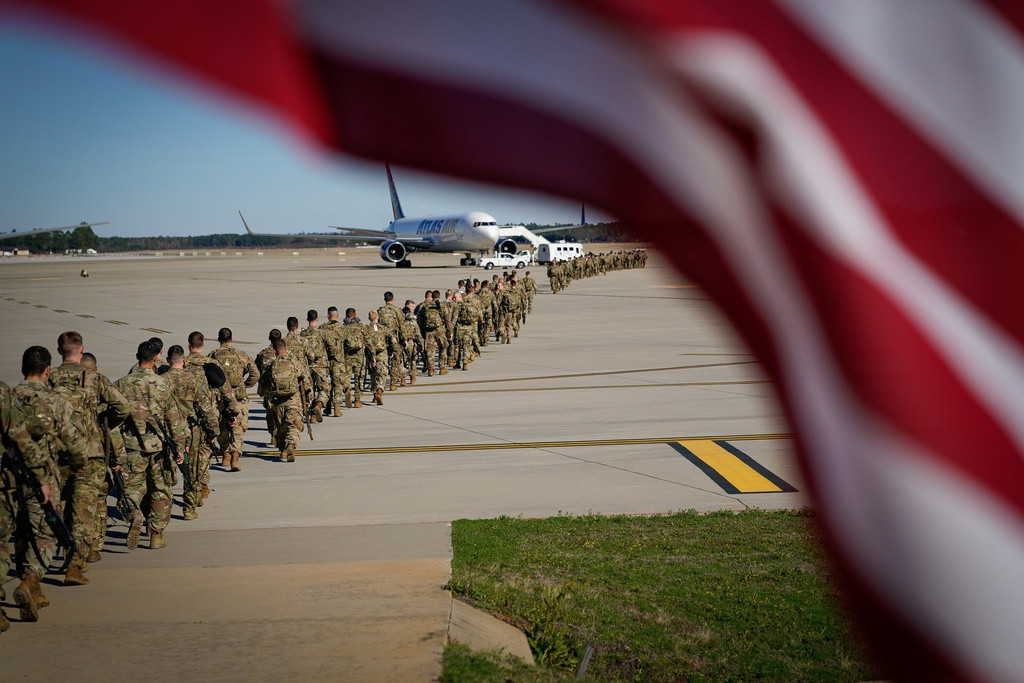 |
| US Army paratroopers leave Fort Bragg, North Carolina, for the Middle East, January 5. Photo: Reuters |
The delay in making the official announcement is believed to allow President Donald Trump to consider two options - to advance or retreat. If Donald Trump takes just one step back, the risk of a large-scale war will be resolved, while Iran still retains its dignity. Of course, the fateful confrontation between the US and Iran will not end, Iran will still find ways to erode the US's position in the region, and the US will also find ways to increase economic and diplomatic pressure on Iran. But at least, a war that could engulf the entire Middle East will not be triggered, especially when leaders of both sides have declared that it is an undesirable scenario.


